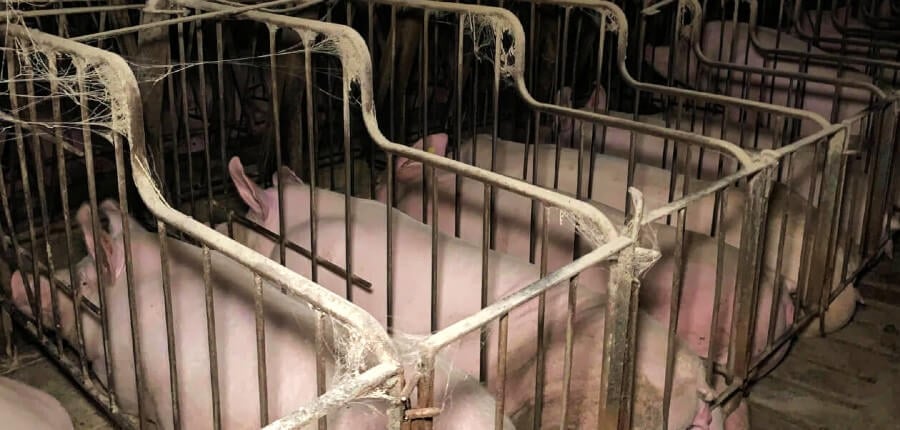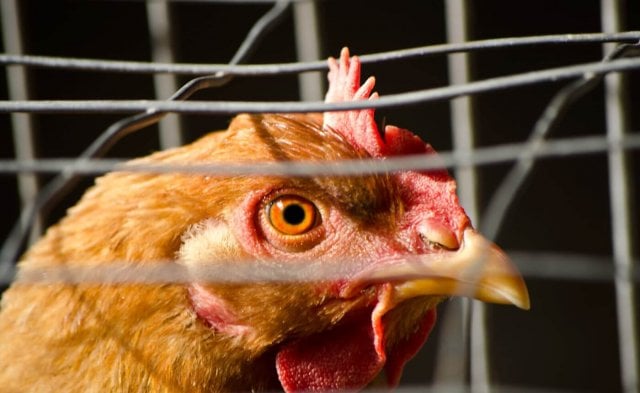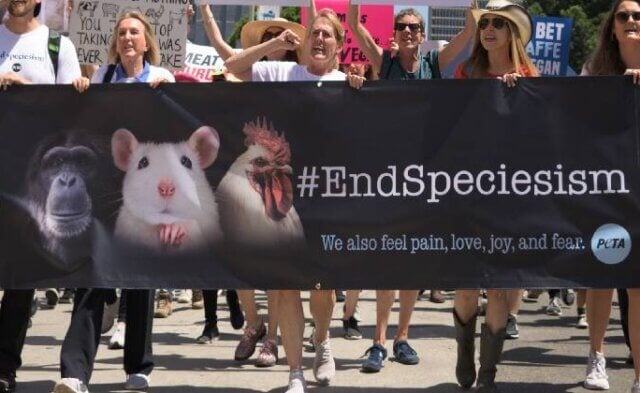Months into this pandemic and with only a dim light at the end of the tunnel, if that, all it took was an ad by Tyson to put yet more vulnerable people — and animals — at risk. After the second-largest meat producer in the U.S. warned of “disruptions,” President Donald Trump signed an executive order to compel meat-processing plants to remain open.
With the swipe of a pen, the order erases the liability that the plants face if workers get sick or hurt. This reckless decision will cost the lives not just of countless animals — in terrible ways — but possibly also of the workers, whom the meat industry already stands accused of viewing as disposable, as well as their families. Slaughterhouses are among the least safe workplaces in the world in the best of times.
No one needs meat. And filthy, blood-soaked slaughterhouses are, like “wet markets,” well-established breeding grounds for disease. Deadly outbreaks of mad cow disease, swine flu, avian flu, SARS, hoof-and-mouth disease and other zoonotic diseases have come from treating animals like commodities, depriving them of almost everything that’s natural to them, and penning, caging and factory-farming them for food.
The sheer number of animals on the slaughter line and the speed with which they travel down it toward the workers who will slit their throats or shoot a captive bolt through their brains does not allow for safety. Federal guidelines now call on companies to encourage single-file movement throughout their plants and have workers spaced 6 feet apart. However, those are suggestions, not regulations. One labor advocate stated it plainly: “The people are still standing next to one another in these plants. They’re still getting sick.”
Lax laws cause immeasurable animal suffering. Another recent Trump administration rule largely deregulated pig slaughter and increased kill speeds. In a sworn statement, a U.S. Department of Agriculture inspector reported an increase in pig carcasses with scalding-tank water in their lungs — an indication that the animals were still breathing when they were dropped into scalding-hot water to remove their hair and soften their skin. The inspector said that she regularly observed workers threatening pigs with raised paddles, ready to strike the terrified animals. During her inspections, she said, she often hears stressed, frightened pigs screaming. These intelligent, inquisitive, friendly animals sense they are doomed.
And birds have no federal legal protection — they are exempt from the meager protections of the Humane Slaughter Act. At Tyson, where PETA conducted multiple eyewitness investigations, workers stabbed birds, slammed them into hanging shackles, breaking their limbs, and were told by a supervisor that it was acceptable to rip the heads off live birds that had been improperly shackled.
As if cruelty weren’t reason enough to stop eating pigs’ body parts, under the deregulated system, the inspector noted that “toenails, hair, and abscesses are routinely allowed in meat intended for human consumption.”
It’s not a matter of whether using and killing animals for food will give rise to another disease outbreak — it’s a matter of when.
For the sake of migrant and other workers who are treated like scum in these slaughterhouses and on behalf of the animals who struggle desperately not to die, these plants must remain closed.





